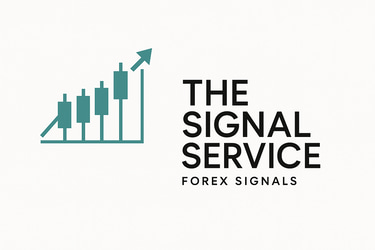How to Manage Risk Like a Pro: The Psychology Behind Winning Trades
Why Risk Management Matters More Than Signals
9/21/20252 min read


How to Manage Risk Like a Pro: The Psychology Behind Winning Trades
When most traders think about success in forex, they immediately look for the perfect strategy or the most accurate signals. But here’s the truth: even the best signals won’t make you profitable if you don’t manage your risk properly. Risk management and psychology are the real keys to long-term success in trading. Without them, good trades can turn into big losses, and winning streaks can end in blown accounts.
In this article, we’ll break down how to manage risk like a professional and how to strengthen your trading mindset so you can turn signals into consistent results.
1. Why Risk Management Matters More Than Signals
Signals provide direction, but risk management keeps you safe. Think of trading like driving a car—signals are the GPS, but risk management is your seatbelt. You wouldn’t get in the car without one, and you shouldn’t take a trade without the other.
A signal can be right in the long run, but if you’ve over-leveraged or ignored your stop loss, a normal market swing could wipe you out before the trade moves in your favour. This is why protecting your capital comes first.
2. The Core Principles of Risk Management
Risk per trade: Never risk more than 1–2% of your account on a single trade. This ensures you can survive a losing streak without blowing your account.
Reward-to-risk ratio: Aim for setups where your potential reward is at least twice the risk (2:1). This way, even if you win less than half of your trades, you can still be profitable.
Stop loss discipline: Always set a stop loss before entering a trade—and don’t move it unless you’re reducing risk. Moving stops to avoid being stopped out often leads to larger losses.
3. The Psychology Behind Winning Trades
Trading is 20% technical skill and 80% mindset. Emotional pitfalls like fear, greed, and revenge trading are what destroy most accounts.
Fear makes traders close trades too early.
Greed makes them over-leverage after a win.
Revenge trading makes them jump into bad setups after a loss.
To succeed, you need emotional discipline. Remember: trading is a game of probabilities, not certainties. Focus on making good decisions consistently, and let the law of averages take its course.
4. How to Use Signals More Effectively
If you’re using professional forex signals, your job isn’t to second-guess every trade—it’s to follow them with discipline. Many traders fail because they pick and choose signals based on gut feeling, or worse, they increase lot sizes randomly.
Here’s how to maximise results from signals:
Stick to the same risk percentage per trade.
Keep a journal of every signal trade you take.
Review outcomes weekly, focusing on discipline rather than just profit.
Signals give you the strategy. Risk management and psychology provide you with consistency.
5. Practical Tips for Staying Consistent
Trade smaller lot sizes until your confidence grows.
Set daily or weekly loss limits to protect yourself from emotional spirals.
Measure success by how well you follow your plan, not just by money made.
Conclusion
Successful trading isn’t about predicting every market move—it’s about managing risk and controlling your mindset. Signals will give you the edge, but how you handle them determines your results.
If you want to put these principles into action, join our free Telegram trial today. You’ll get professional signals delivered instantly to your phone, and with proper risk management, you’ll see how powerful consistency can be.
Trading
Expert forex signals for profitable trading strategies.
Disclaimer:
Trading forex involves significant risk and may not be suitable for all investors. Past performance is not indicative of future results. The information and signals provided on this website are for educational purposes only and should not be considered financial advice. You are solely responsible for your trading decisions and any resulting financial losses. Please consult with a licensed financial advisor before engaging in forex trading.
© 2025. All rights reserved.
